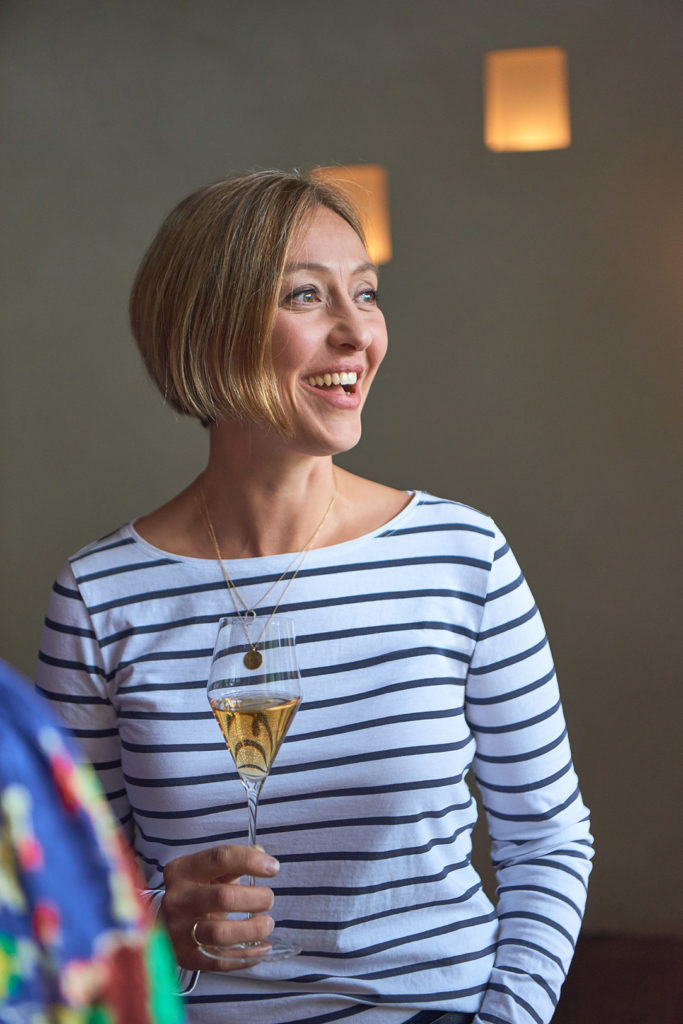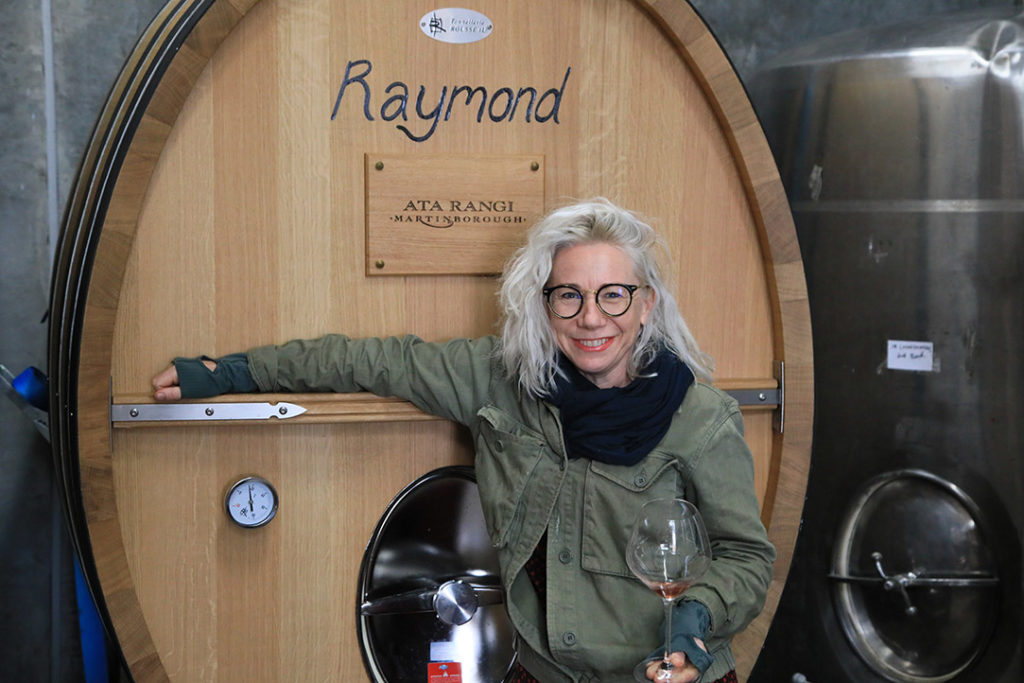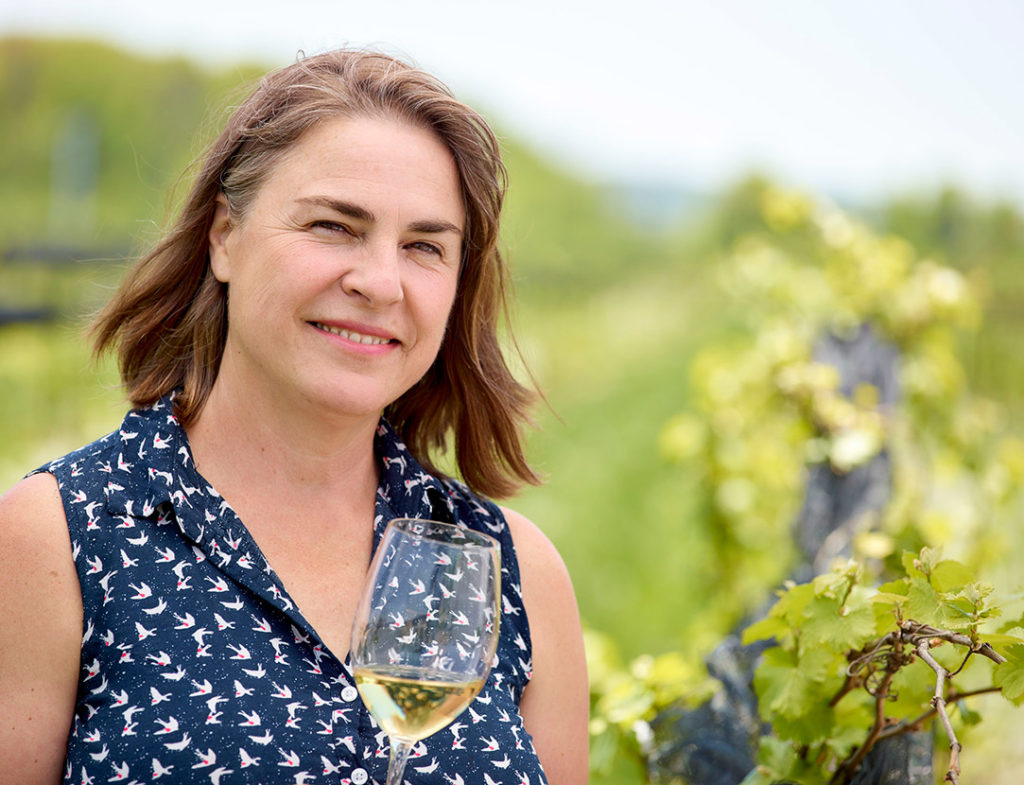Wine has traditionally been a male-dominated field, but dedicated female winemakers around the world are slowly but surely challenging this outdated status quo. Meet three inspiring female winemakers who are changing the face of the industry with their cutting-edge wines, and breaking new ground for the next generation of women in wine.
Cherie Spriggs, Nyetimber, UK

Cherie Spriggs describes her path to becoming head winemaker at Nyetimber, a sparkling wine vineyard in West Sussex, England, as proof of what’s possible when we give ourselves permission to pursue our dreams. Spriggs was introduced to Nyetimber while studying at the University of British Columbia’s Wine Research Centre. Her father brought her a bottle from the UK and Spriggs says she saw “potential” in it “that we don’t find in sparkling wine anywhere else in the world except Champagne [France].” The memory of that tasting stayed with Spriggs, so when she and her winemaker husband were talking about dream jobs five years later, “the first thing that came into my head was ‘I want to make sparkling wine in England,’” says Spriggs. A cold email to Nyetimber revealed the owner happened to be on the hunt for two new winemakers, and the rest was history. In 2018, Spriggs was named “Sparkling Winemaker of the Year” at the International Wine Challenge, making her the award’s first female winner as well as its first winner based outside Champagne. Spriggs has helped establish Nyetimber as the UK’s leading sparkling wine producer. She’s now aiming to replicate that success internationally, where consumers are often surprised to learn that wine is produced in England at all, let alone award-winning vintages. “It’s going to be amazing to spread the word about English sparkling wine and Nyetimber around the globe,” she says.
Become an S Insider
The latest in fashion, beauty, design, and arts & culture.
Helen Masters, Ata Rangi, New Zealand

Helen Masters’ early love of wine was sparked by its ability to fuel lively family dinner table debates when she was growing up. With a career in wine in her crosshairs, Masters took an entry-level job at Ata Rangi, a small winery in New Zealand known for its pinot noir, straight out of high school. She says the experience, which saw her working in a variety of different roles around the vineyard, confirmed to her that her future would be in winemaking. After getting her degree in food technology and working in the industry for several years, Masters returned to Ata Rangi as a winemaker. “We farm organically and I feel this helps us to create distinctive wines that speak of our place,” says Masters of the wines she produces at Ata Rangi. “Once the decision has been made to pick [the grapes], I’m very careful not to overlay the fruit with any strong winemaking characteristics.” With Masters at the helm, Ata Rangi attained New Zealand’s first grand cru equivalent (a French classification applied to vineyards known for consistently producing quality wines) status in 2010. Masters says that the experience of growing up with sixth brothers has helped her feel at home in the male-dominated world of wine. “It’s exciting to see a diverse range of women join the industry,” she says. “We’ll end up with an industry that is more interesting and accessible because there are more women involved.”
Ann Sperling, Southbrook Winery, Canada

Ann Sperling grew up around wine, spending her childhood living on her family’s vineyard in B.C.’s Okanagan Valley. During that time, interest was beginning to shift from the large, corporate vineyards that had dominated the Canadian wine industry in the past, and there was growing interest in estate vineyards like her family’s. Throughout her youth, Sperling remembers winemakers visiting her family vineyard to learn about their production process. “I think that had an impact on me,” says Sperling. “It got me thinking that that seemed like a pretty interesting career.” After moving to Ontario’s Niagara region to focus on winery start-ups and organic production, Sperling joined the Southbrook team in 2005. She later took over her family vineyard in 2008, and now divides her time between the two. Sperling has long been known for helping pioneer organic winemaking in Canada and, lately, she has a growing interest in natural wines. As one of Canada’s early female winemaking leaders, Sperling is often viewed as a role model for women in the wine industry, although she says she never felt limited by her gender. “If you count up all the numbers, there are more men,” she says, “but when you look through history, there have always been remarkable women involved with wine.”

